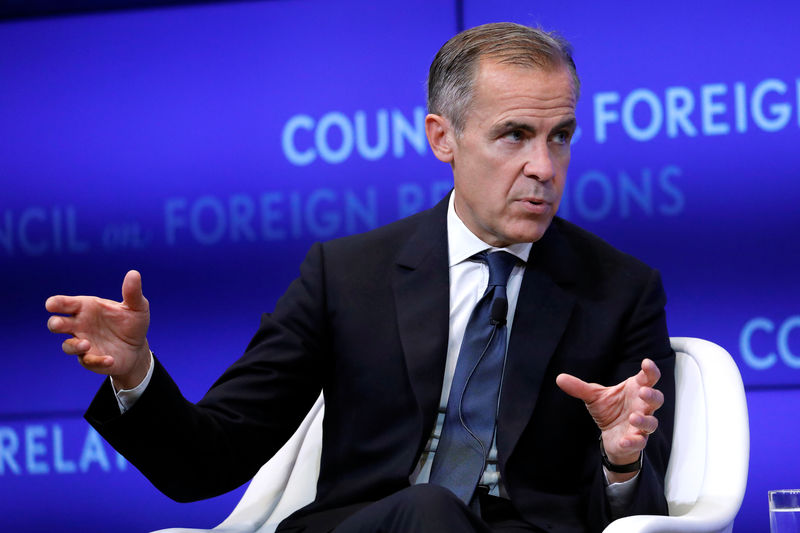BOSTON (Reuters) - The Bank of England would probably take measures to stimulate bank lending in the event of a fresh downturn in the economy, and government fiscal policy could also play a role, BoE Governor Mark Carney said on Wednesday.
Carney said the British central bank would probably cut the countercyclical capital buffer that it sets for banks to zero, from 1% now, if the economy - which faces the prospect of a no-deal Brexit shock - took a hit.
"You certainly can paint scenarios, globally and then in the UK, where that may not be enough," Carney said when asked at an event at Harvard University about the monetary policy options available to the BoE with interest rates so low.
"And certainly you can paint scenarios where you want to do some of that, but you absolutely want to complement it by fiscal policy."
This week, the International Monetary Fund said governments should consider using fiscal policies such as investing more in skills and infrastructure after it predicted the world economy was set for its slowest growth in a decade in 2019.
British Finance Minister Sajid Javid has raised the prospect of increased public investment in infrastructure as a way to give the economy a boost after Brexit.
Carney said the world economy was close to a liquidity trap - when interest rates are low and savings rates are high, making monetary policy ineffective - which put the onus on governments to kick-start growth with their tax and spending policies.
Asked about his views on climate change and potential divestments from fossil fuel firms, Carney said a more effective approach would be to help companies, including automakers and energy producers, move to lower emissions.

"It’s not just about divestment," he said. Better, he said, would be "to put capital into an energy company, that’s going from oil-and-coal heavy to a renewable mix, that they wouldn’t otherwise do if they didn’t get the capital."